
I’ve backed a lot of projects on Kickstarter, most of them space games, as you can see. I try to be as supportive as I can to small, medium and large spacey games on Kickstarter, Steam Greenlight and anywhere else I can. However, today I had to pull my pledge for Elite: Dangerous with some sadness. Why did I pull my pledge? One update in nine days is why. ONE.
I’ll admit I’ve had problems with the Elite: Dangerous Kickstarter campaign from the start, for a variety of reasons (lack of visuals, confusing tiers, lack of clear goals and/or transparency, etc etc…). This got me to thinking…why are some Kickstarters so successful while others aren’t?
In my day job, I work in Search Engine Optimization, and have successfully done so for the last eight years. If you aren’t aware of what SEO is, don’t worry, most people aren’t. If you don’t feel like reading Wikipedia, to summarize, SEO is basically a way of making websites better for users and search engines so they rank higher in search engine results pages, or SERPs as we call ’em. There are many facets to SEO, such as content generation, tag manipulation, link building and so on, but ultimately the goal is to offer users the best user experience a website can offer in order for them to not only to visit the site, but remain there and ultimately convert from a visitor to a customer.
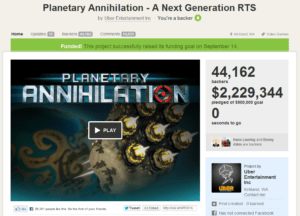
Now I’ve been looking at the Kickstarter campaigns I’ve been backing as well as others, and have noticed a bunch of commonalities present in the successful campaigns and the failed ones. I’ve been thinking of writing an article with my observations not just as a neat idea for an article, but also as a resource for game developers who might be looking to use Kickstarter for their own projects. Let me say, I’m not a video game marketer or a PR person, but I’d like to think that nearly a decade in Internet Marketing has given me a useful perspective, and it’s that which I’d like to share. :)
First of all, before moving on, I’d like to explain what I think Kickstarter is. While some claim it’s simply a pre-order system, I feel it’s much more than that. Kickstarter is a hype machine, a way to generate trust, faith and goodwill amongst fans and potential donors, and a way to give users a level of access they’ve not had before. It’s a way not only for developers to ask for money (and some appear to see it only as this), but a way to share their belief and conviction about their project with new people, and to ask people to join them in their journey to bring their dream to reality. A good Kickstarter campaign conveys this passion, conviction and belief, enough that people who share these qualities feel confident enough in the developers to give them their hard-earned cash.
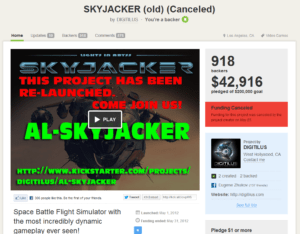
Now, with this idea in mind — that Kickstarter is a method to generate trust, hype and goodwill about a project by enhancing a user’s experience and expectations — there are many elements I’ve noticed in a successful Kickstarter campaign, and these include:
Clear Campaign Goals
The best Kickstarter campaigns, I’ve noticed, have been clear and up front with their goals, such as how far along they are in their project, where the Kickstarter funds will go to help with project completion, release dates and so on. By having clear goals from the start, users like myself feel they can trust the people behind the project a little bit more. Explain everything in a clear and concise manner, with well-written content that conveys both your passion as well as trust in the intelligence and passion of your potential fan-base.
Clearly Defined, Worthwhile Tiers
To bring up Elite: Dangerous again, their tiers just…don’t feel worthwhile. Around $20 US just to reserve my game name? Really? Many campaigns give you a copy of the game for that price. I’ve also seen some campaigns, such as SkyJacker, restart their whole campaign because their tiers weren’t clearly defined, causing user confusion. Good examples of clear tiers include the campaigns for Planetary Annihilation, Auro and Star Citizen, all of which clearly lay out each item in each tier as well as cumulative rewards. Having clearly defined and explained tiers is an essential component to a good campaign, I believe.
Regular, Consistent and Well-Written Updates
This is a sort of nebulous one, but still the main reason I canceled my pledge for Elite: Dangerous. I’ve seen Kickstarter campaigns with normal updates fail, while others have succeeded (I have a thought as to why in the next bullet point). Regardless, regular, clear, well-written updates are essential, as they help convey a feeling of excitement from the people running the campaign, as well as add to the transparency of the whole thing. Mentioning both Star Citizen and Planetary Annihilation again, these campaigns have had regular, copious and interesting updates that make users both excited and more informed about the project, and also add a sense of community and belonging.
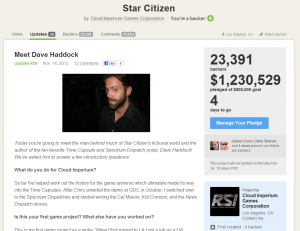
I’ve seen other campaigns with just a few updates throughout the life of the campaign, and even those felt passionless, lacking both excitement and conviction. I mean heck, if the developer isn’t that excited about their project, why should we be? Ultimately, the developer is trying to sell us on their dream, their idea, their passion, but if their basic pitch nor their updates reflect this, they’ll have a hard time convincing folks that they should fork over their money. Overall, if you’re passionate about your project, share that passion with us in updates that include well-written content, video, images and so on. That kind of commitment will go a long way in convincing us to share in your dream.
Realistic Financial Goals
Many of the campaigns I’ve seen fail have this one thing in common: They ask for too much money. You may have a great project with fantastic graphics, a wonderful premise and lots of updates to share with us, but if you’re asking for a lot of money right up front, folks like me might wonder why. I mean sure, campaigns like Planetary Annihilation and such had high goals, but they also had a huge team with a well-established and beloved history of games behind them. Not everyone can offer that. Many of the projects I’ve seen succeed I think were helped by keeping their financial goals humble and realistic. I’ve also seen projects with a great pitch, lots of updates and a passionate team fail due to possibly asking for too much money.
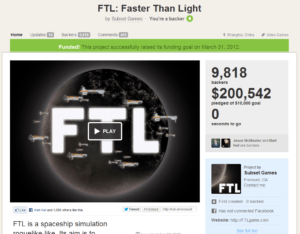
I mean, look at FTL and StarDrive. They were asking for very small amounts compared to other, better known projects, and yet they passed their goals several times over. I knew as little about these teams going in as I did about campaigns with larger goals and prettier graphics, for example, but I believe because these smaller projects kept their goals small and realistic, combined with other factors listed here, they succeeded in grand style. It’s hard to give exact advice on this because hey, if you need $650,000, you need $650,000, but maybe if you need that much, you might need to line up more investment capital first. Overall, realistic and humble financial goals seem to really be an asset when it comes to helping a Kickstarter campaign succeed.
Transparency
This is also a hard one to define, but here goes. ;) When I’m reading a pitch for a game, I want to feel like I’m being told everything up front. This goes along with the clearly defined campaign goals, but it’s more than that. When I read a pitch or an update, I want to feel like I’m learning everything available about a project. The inspiration, the background, the current progress, the plans for the future, all of that. If I feel like I don’t have the entire picture, I’m much less likely to donate to a campaign, no matter how cool the project looks. Now it might seem I back every PC-based space game that comes onto Kickstarter, but that isn’t the case. There are plenty I’ve passed on because, after reading the pitch and watching the video, I still felt like there were pieces missing. Being up-front about the project’s past, present and future goes a long way to helping convince fans to part with their money.
Be Professional
Not everyone can afford a fully-edited pitch video with music and special effects and the like, and we don’t expect that. We do expect a level of professionalism in you campaign, however, and if we don’t see that, I’d guess folks would be less likely to donate. Don’t try to be clever or funny or whatever, just be honest, sincere and forthcoming. I’d much rather see a pitch that was earnest in its presentation rather than one that was trying to make me giggle, as some have appeared to do. Seriously, some of the videos I’ve watched have ranged from unintentional hilarity to outright discomfort. Be serious, be sincere, be professional in not only your pitch, but your updates and your comments with fans. It goes a long way.
Make the Strongest Pitch You Can
I’d like to tie it all together into my final piece of advice. The initial pitch is the most important piece of the puzzle. Your pitch needs to be well-written, passionate, exciting, transparent and clearly defined, or else it will lead to people looking elsewhere for their next project to back. Your pitch shouldn’t just be about asking for money, but WHY are you asking for money, and why is your project worth our time, our attention and our funds. If your pitch ultimately says “Yeah, I’ve been working on this project for a while, it’ll be awesome, give me money and I’ll show you why,” that likely won’t be enough.
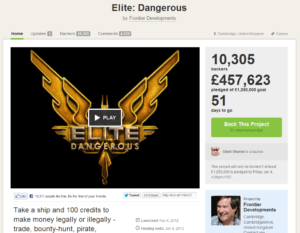
If your pitch doesn’t connect with potential fans due to not being passionate, transparent or informative enough to grab fans in some way, you’ll be done right there. Again, looking at projects like Planetary Annihilation, their pitch was one of the best I’d ever seen. It basically told people in clear, professional language, “Hey, here’s who we are, here’s why we love the idea of this game, and why we think you’ll love it to.” They also trusted their potential fans to come on board after bearing witness to their passion, excitement and professionalism.
In Conclusion
I hope y’all don’t mind the wall of text, but this is something I’m passionate about. I’d love to see every professional, well-made Kickstarter campaign succeed if possible, so I hope that someone finds this useful in their own journey toward getting their project funded. Kickstarter is a fantastic way to see your dream and your passion become something real, and if you put your all into the campaign, and if you treat it and its users with respect and trust, ultimately you’ll have a better chance of success.
I want to thank you for reading my hopefully useful ramblings, and invite you to hit me with questions or comments if you want to discuss this further. Have a great day, and to everyone thinking of starting their own Kickstarter campaign, I wish you the best of luck.
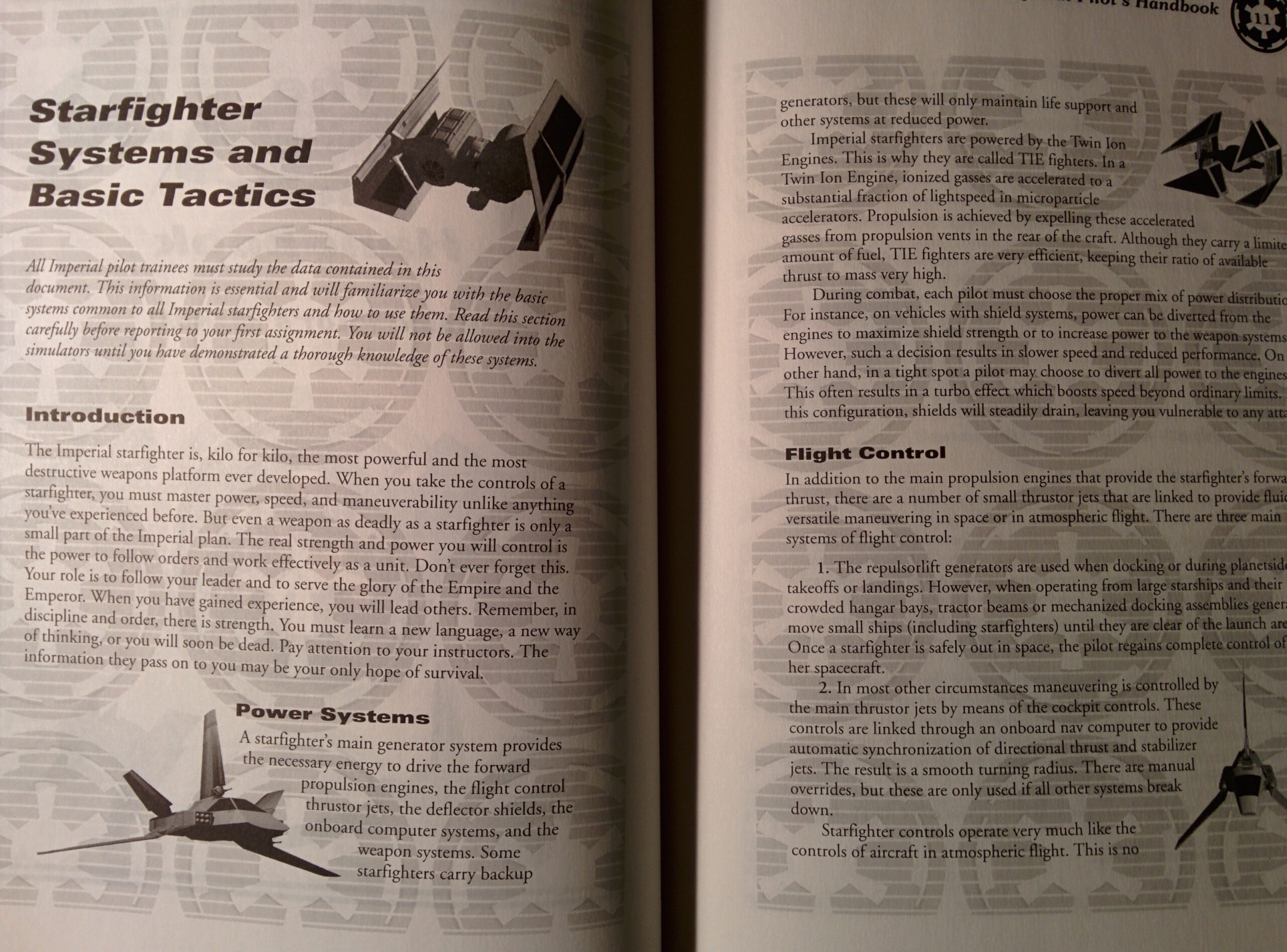
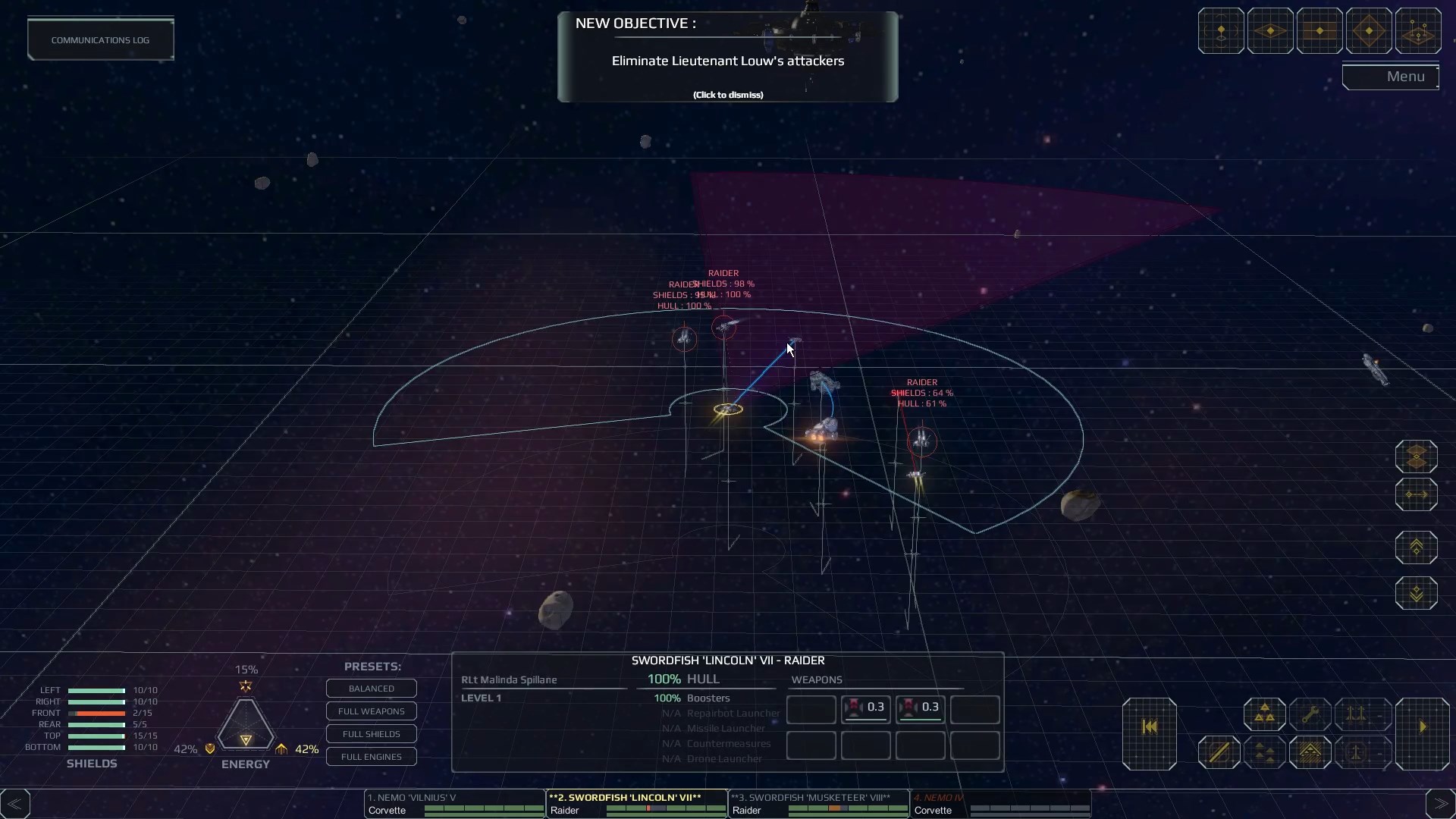
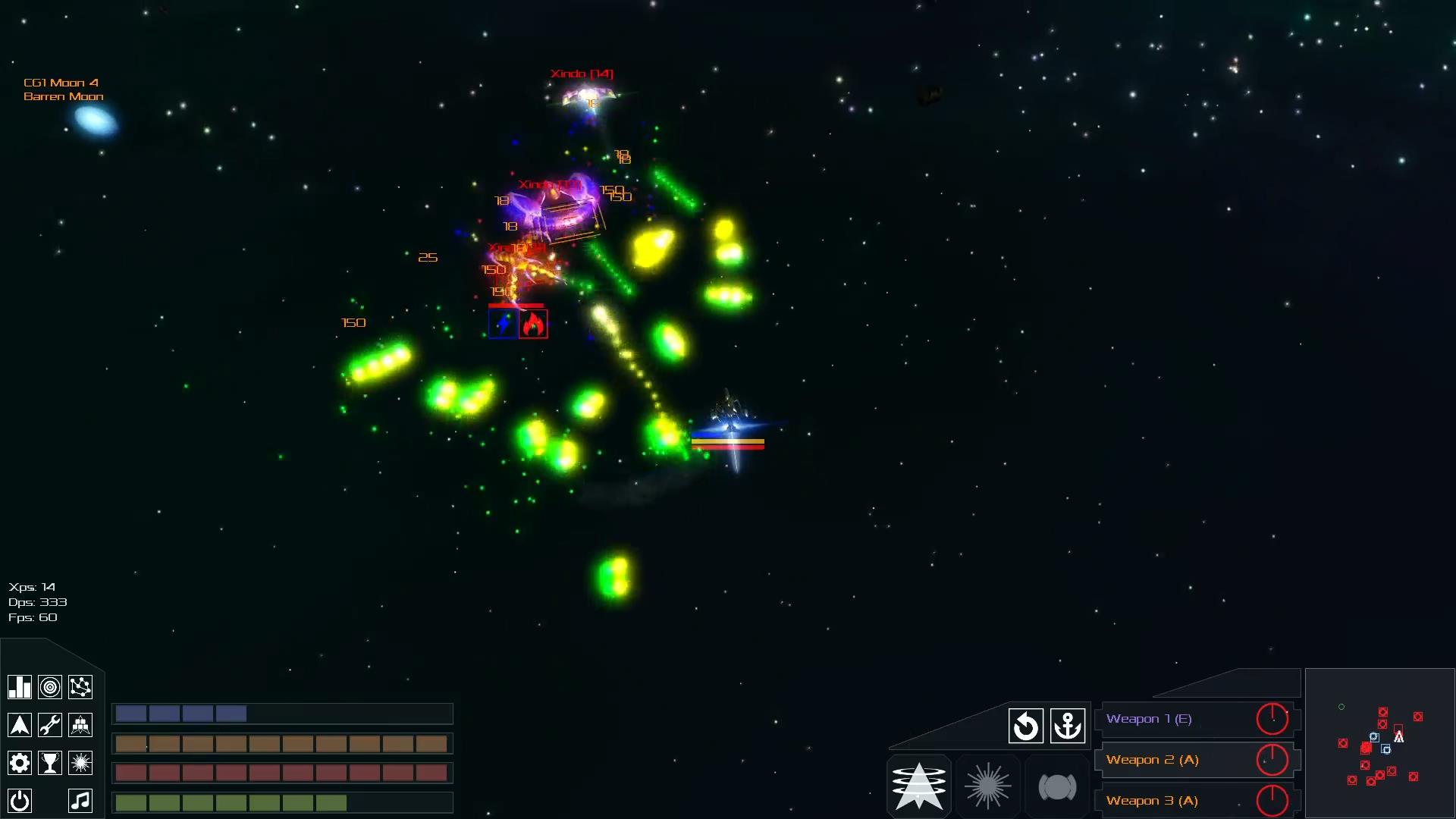

Brian, thank you for this post. I really hope that the people at Frontier Development and Most Wanted Entertainment (Nexus 2: The Gods Awaken) will invest the time to read this article and actually learn from it. Especially the Nexus 2 campaign was god-awful, and perhaps the devs wanted it to fail. I cannot imagine why else they made such blatant mistakes.
As to Elite 4, well, David Braben said in a recent interview (https://www.nowgamer.com/features/1667359/elite_dangerous_david_braben_interview.html) that Frontier Development is in the final stage of releasing the game Coaster Crazy. Also, from the comments section on the KS page: “All – apologies for the lack of engagement. In my ‘day job’ we’re launching a new game tonight on iPhone/iPad/iPod called “Coaster Crazy”. It goes live at midnight as midnight moves around the world…”
However, I must say that his timing is worse than bad. If he is so involved that he can’t find the time to properly work his KS campaign, he should have postponed it. There is really no excuse to start the campaign with really nothing to show. I pledged the minimum amount necessary to get the game, but just like you (and several other backers, it seems) I am seriously considering to cancel my pledge.
By the way, thank you for maintaining this site. I have it permanently open in my browser tab now. :-)
Hey man, welcome to the blog. :) Yeah, part of why I wrote this is to help devs succeed. And honestly, if Frontier was finishing up another game, they should’ve waited, like you said. This sort of behavior is inexcusable, I think. Also, thank you for the kind words, and I’m glad you enjoy the site! :)
Excellent analysis, Brian. Your SEO perspective is interesting and informative. My reasons for not supporting Elite: Dangerous are obvious to those who know that Binary Helix are the developers of “Dangerous”. But the lack of transparency by Braben also seems to jive with what I consider a deficit in character for him knowingly using a name that is confusingly similar to our game. Regardless, we’re probably going to give Kickstarter a try in the near future, so this was very helpful as a sort of check list.
Thanks man, and I do hope you and other developers find it helpful. That was the main crux in writing it (besides my need to vent, of course). ;)
Sir, you have successfuly summarized and organized all the ranting posts I was throwing at Nexus 2 devs. :)
In other words – great article, 100% support every statement :)
Oh, and might I add another advice: if your kickstsarter has been successful, don’t start it again asking for even more money. It feels really cheap.
I’m talking about is this:
https://www.kickstarter.com/projects/mercenary-games/fleetcomm-operation-vigrior-reloaded?ref=live
Guys making FleetCOMM started another kickstarter asking $50K instead of $15K.
Hah, thanks! And yeah, I’m not sure how I feel about that, honestly. I kicked to their first one, but now I dunno…
How the hell do I find you , so I can follow you on Kickstarer, lol…
The link to my profile is right up there. :) But hey, also – https://www.kickstarter.com/profile/brianrubin
Tottally agree with your article, Brian. I’ve help my minimum pledge for Elite at the moment in the hope that David will sharpen up. But the offhand and lackluster latest update grated me more than a little.
Fronteer, (and the Nexus 2 devs, sadly) dont seem to realise that running a KS campaign is hard work, and needs constant attention. Chris England, the guy who did Xenonaughts likened it to caring for a small baby: You need to fuss over it constantly.
Unless David wisens up sharpish, he’s going to ruin his good will with the fans. Perhaps perminantly.
Thanks man, and yeah, that sounds like great advice coming from Mr. England. That should be true of ANY marketing campaign. It’s certainly true of SEO and PPC (the paid side of search engine marketing). Campaigns need constant monitoring, tweaking and care. Kickstarter is no different.
An excellent article and not off-topic at all. Your headline does it a disservice, sir!
I’m going to write in defence of David Braben and his English-boffin ways. You are of course in your rights to withdraw funding for whatever reasons you like, and they are all valid – of course – but writing as an unrepentant Elite fanboy here; I’d back the game to the ends of Earth, even if the Kickstarter page was just a logo and a terse demand for money (which isn’t too far from the truth). That’s my right too, and I’m happy to leave my easily-squandered cash in the pot regardless of how things progress.
I’m met David Braben a couple of times and he came across to me as very old school. He’s not really an advocate of this hyper-connected world with it’s embedded and insidious forms of social marketing. I wouldn’t say he was socially-awkward, but he’s tense and closed and seems to me highly protective and controlling of his ideas. When his thoughts are unleashed, they are often ripped apart, as in the case of his stance on DRM and second-hand game sales. Don’t forget (ZX) Elite was the first games to have recognisable DRM, and Braben has had fan remakes pulled in cases that would make LucasArts blush. It’s fair to say that he comes across – fairly or unfairly – as a bit of a dinosaur, and maybe his Kickstarter bid is indicative of that.
But hey, that’s how he rolls. He’d trashed the X games and Eve, which is disingenuous to say the least, but Elite means more to me than how Braben chooses to communicate. A great deal of my adolescent years were invested in Elite (almost as many as adult years have been poured into Eve, et al), to the point that I’m content to leave Braben to his ways and devices. Elite is happening and that makes me very happy – and that’s all there is too it. I have no desire to impose my designs on how the game should be, no interest in reading daily updates about some meaningless stretch goal, I’d rather he just get on with things so I can play the damn game.
Well, it’s not strictly related to space gaming, hence the “Off-Topic” moniker. :) Thanks for your insight into Mr, Braben too man. I too am a huge fan of Elite, and while I’d be VERY happy to see the game succeed and be awesome, the mishandling of this campaign has left a bad enough taste in my mouth to overcome my love for the game, sadly. :/
Thanks for your article! I’m planning on starting a KickStarter for Beyond Beyaan soon, but after reading your article, I realized that it will require more time and effort than I thought. So I’m going to postpone until after the new year because my work is requiring me to work overtime (we’re trying to finish up a new version by end of year). I will read your article again carefully when I do make the kickstarter effort for my game!
Happy to help, but wait, why is BB going to Kickstarter? I thought it was open source?
Open Source != Free Game. I plan on obtaining more artwork, and getting sounds/music for my game, but they are not free, so I need funds for them. Think of it this way, if I’m building a car, you’ll get the engine for free, and you can modify and tinker with it as much as you want. However, the things that the engine needs to make the car go, such as tires, a frame, transmission, seats, gas tank, etc, are not free and need to be purchased. Does that make sense?
Fair enough. :)
Tangential topic: Kickstarter needs a way to friend/follow people so we don’t need to manually push links to interesting projects through Facebook and forum posts.
Agree, that’s more of a thing for Kickstarter themselves to implement. That’d be awesome though.
“Kickstarter is a hype machine, a way to generate trust, faith and goodwill amongst fans and potential donors, and a way to give users a level of access they’ve not had before.”
It is all that. I define Kickstarter succinctly as “the stock market of dreams.” People post their dream projects, and those whose dreams align invest in them.
That’s also a very good way to put it. :)
Brian, I’ve been following you for almost a year now, and after this article I can say I share your view on one more thing aside from space games… kickstarter!
My team has been building our kickstarter for over a year (actually we started about a week before Double Fine). I planned to launch in July, but then I just didn’t think it’d do our team, nor any fans justice by launching half cocked. So are putting another 9 months of our time and personal money before asking others to give us theirs.
However, over this time I’ve watched kickstarter closely for the big do’s and don’ts, and I think you pretty much hit it on the head. Great read, thanks!
That is insanely encouraging to hear that you’re trying to take the time to learn Kickstarter and do a campaign right. I really hope it works out for you guys. Also, thanks for following me. :)
Great article. Well written and informative.
But most of all, a sensible and sober approach at what the kickstarter thing is about.
Will direct other folks here to read it.
Kudos mate!
Hey, welcome to the blog MiniMax, and thank you so much for the kind words. :)
Well given that Elite’s campaign is longer than Star Citizen’s maybe they will starting gearing up soon
Welcome to the blog Serge! And maybe, but for myself personally, it would take a TON OF updates, transparency and attempts at goodwill for them to get my money at this point.
It could be they tried a different strategy to kind of tease in the beginning and not give up much info…..we shall see.
Yeah, I’d love nothing more than to see the do a 180 and start running an actual competent campaign. :)
do you think that using Dangerous in the title is a bit of a ripoff as someone else stated?
Honestly, I doubt it’s intentional. He likely just chose the name without seeing what competition their might be, or had too much hubris to even consider there was any competition at all.
According to a former Frontier employee, the name issue with our game was brought up before their Kickstarter, but it was ignored.
https://www.reddit.com/r/IndieGaming/comments/12x70l/weve_been_developing_our_indie_space_game/c6yw98a
Oh, well, fuck ’em then. That’s just arrogant. I’m totally gonna mention this.
I had doubts when I pledged but waived them away because I had a great time playing Elite. Now I have also cancelled my pledge. Maybe it is because of how well the Star Citizen campaign went, I had so much fun with that one (still am), I’d rather save money to buy stuff like a Rift, Leap, etc., to get the maximum of immersion possible instead of maximum number of games to play. While I really like the idea of procedural programming, that doesn’t mean it will be a great experience. In the end the experience counts. I have more faith in a Chris Roberts, who already has other top notch programmers and artists on board, then David Braben who is, as it seams, currently working on something else. If I were David, I’d take my loss, regroup, analyze the SC Kickstarter campaign (much to be learned there), prepare for a new campaign and come back in a year. Just my 0.02.
Welcome to the blog Daan, and thanks for your comment! And yeah, that’s a good way to put it, the Elite Kickstarter feels like an afterthought, which insulting to us as fans I feel.